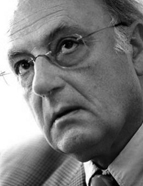

His interest in regional and local history was equally notable, explored both through his academic career and his active involvement in his community, which earned him distinctions such as the Medalha de Mérito Municipal [Municipal Merit Medal] (1996) and the Medalha de Honra [Medal of Honour] (2005) from the Cascais Municipality. Over decades, he directed the International Summer Courses in Cascais (1992–2017) and chaired the board of the Instituto de Cultura e Estudos Sociais [Institute of Culture and Social Studies], organising various courses on topics related to local history and heritage. In addition, he founded and presided over the Centro Internacional para a Conservação do Património (CICOP – Portugal) [International Centre for Heritage Conservation]. Beyond the place where he lived, his birthplace also drew his interest, inspiring him to coordinate the publication of Portimão e a revolução republicana [Portimão and the Republican Revolution] in 2011.
José Manuel Tengarrinha approached his research with a multidisciplinary analytical perspective, drawing on various fields of knowledge. From an early stage, he sought to uncover the reception of written works, examining different dimensions, particularly issues surrounding the reader. In addition to the aforementioned study on A novela e o leitor português [The Novel and the Portuguese Reader] (1973), he returned to the topic with Imprensa e opinião pública em Portugal [The Press and Public Opinion in Portugal] in 2006. Three years earlier, he published Da Liberdade Mitificada à Liberdade Subvertida: Uma Exploração no Interior da Repressão à Imprensa Periódica de 1820 a 1828 [From Mythified Freedom to Subverted Freedom: An Exploration of the Repression of the Periodical Press, 1820–1828].
Throughout decades of practicing his craft as a historian, José Manuel Tengarrinha embraced the tripartite concept of culture—ontological, anthropological, and as constitutive knowledge—treating history as an iter , where understanding the past is a central premise for grasping the present and transforming the future. He addressed potential overlaps between authorship and themes, explored languages, audiences, and everyday impacts, and validated his subject matter within an ongoing process of scholarly inquiry. In his continuous revisitation of his research topics, he consistently applied a critical lens and a method of interpretative refinement, exemplified by the successive editions of his História da Imprensa Periódica [History of the Periodical Press]. Indeed, his analysis resonates with the "cultural documents" that gain meaning through their connections with both the social conditions of the communities from which they emerged and the audiences they were intended for. Aware of the porous boundary between literary and journalistic writing, Tengarrinha epistemically distinguished these domains. He rejected an "uncritical hospitality" and instead drew upon decades of investigative material to complement historical information, always adhering to a clear historiographical framework. As a true craftsman of history, Tengarrinha engaged with the temporal dimension, critically reading broader contexts while interrogating his role as a historical subject. He paid close attention to details shaped by what he referred to as the "nervousness of the social process," a term he used to characterise various conjunctures and evolutionary rhythms. Until his final day, 29 June 2018, he remained committed to actively participating in the public sphere.
This work is financed by national funds through FCT - Foundation for Science and Technology, I.P, in the scope of the projects UIDB/04311/2020 and UIDP/04311/2020.
